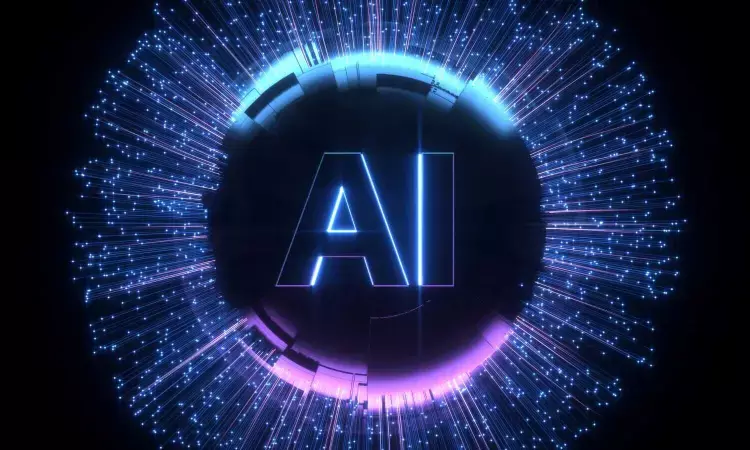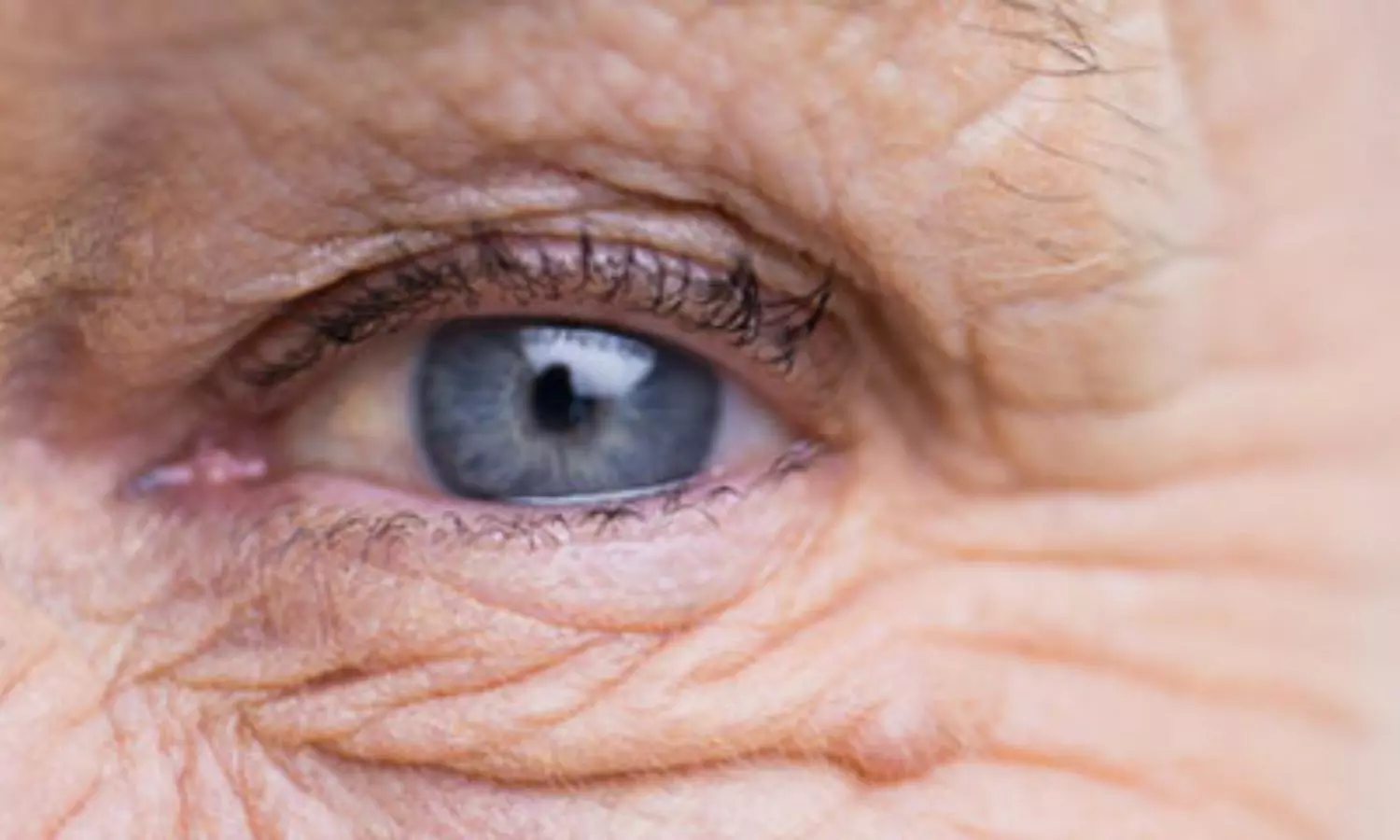- Home
- Medical news & Guidelines
- Anesthesiology
- Cardiology and CTVS
- Critical Care
- Dentistry
- Dermatology
- Diabetes and Endocrinology
- ENT
- Gastroenterology
- Medicine
- Nephrology
- Neurology
- Obstretics-Gynaecology
- Oncology
- Ophthalmology
- Orthopaedics
- Pediatrics-Neonatology
- Psychiatry
- Pulmonology
- Radiology
- Surgery
- Urology
- Laboratory Medicine
- Diet
- Nursing
- Paramedical
- Physiotherapy
- Health news
- Fact Check
- Bone Health Fact Check
- Brain Health Fact Check
- Cancer Related Fact Check
- Child Care Fact Check
- Dental and oral health fact check
- Diabetes and metabolic health fact check
- Diet and Nutrition Fact Check
- Eye and ENT Care Fact Check
- Fitness fact check
- Gut health fact check
- Heart health fact check
- Kidney health fact check
- Medical education fact check
- Men's health fact check
- Respiratory fact check
- Skin and hair care fact check
- Vaccine and Immunization fact check
- Women's health fact check
- AYUSH
- State News
- Andaman and Nicobar Islands
- Andhra Pradesh
- Arunachal Pradesh
- Assam
- Bihar
- Chandigarh
- Chattisgarh
- Dadra and Nagar Haveli
- Daman and Diu
- Delhi
- Goa
- Gujarat
- Haryana
- Himachal Pradesh
- Jammu & Kashmir
- Jharkhand
- Karnataka
- Kerala
- Ladakh
- Lakshadweep
- Madhya Pradesh
- Maharashtra
- Manipur
- Meghalaya
- Mizoram
- Nagaland
- Odisha
- Puducherry
- Punjab
- Rajasthan
- Sikkim
- Tamil Nadu
- Telangana
- Tripura
- Uttar Pradesh
- Uttrakhand
- West Bengal
- Medical Education
- Industry
Breakthrough AI Technology Promising in Early Detection of Rheumatic Heart Disease in Children

In a groundbreaking study, researchers have demonstrated the potential of artificial intelligence (AI) to detect latent rheumatic heart disease (RHD) in children through the analysis of echocardiograms. The findings, published in a recent medical journal, reveal a promising avenue for identifying RHD before the onset of symptoms, enabling early intervention and prevention of disease progression.
The study results were published in the Journal of the American Heart Association.
Detecting latent rheumatic heart disease (RHD) in children through echocardiography before the manifestation of symptoms offers a chance to commence secondary prophylaxis, thereby halting the progression of the disease. However, there is a scarcity of published artificial intelligence (AI) studies that explore the capacity of machine learning to identify and analyze mitral regurgitation or ascertain the presence of RHD in standard portable echocardiograms. Hence, researchers conducted a study to analyze the use of AI in detecting RHD.
The study, which involved the examination of 511 echocardiograms from children, focused on color Doppler images of the mitral valve—a key area for assessing RHD. The researchers implemented an automated method that combined advanced techniques, including convolutional neural networks (CNNs) for harmonizing echocardiograms and deep learning models with an attention mechanism for RHD detection.
Key Findings:
- The results showcased remarkable accuracy in various aspects of the AI-driven analysis.
- The automated method demonstrated a high proficiency in identifying the correct view, with an average accuracy of 0.99, and the correct systolic frame, achieving an average accuracy of 0.94 for the apical view and 0.93 for the parasternal long axis.
- Crucially, the algorithm successfully localized the left atrium during systole, a critical step in RHD assessment. The localization accuracy was measured by the Dice coefficient, and the AI model exhibited an impressive average coefficient of 0.88 for the apical view and 0.9 for the parasternal long axis.
- The study also compared the AI-driven analysis of mitral regurgitation with expert manual measurements. The automated method's measurements were found to be similar to expert manual measurements, indicating a high level of accuracy. A 9-feature mitral regurgitation analysis further demonstrated the AI model's effectiveness, achieving an area under the receiver operating characteristics curve of 0.93, with precision, recall, and F1 score values of 0.83, 0.92, and 0.87, respectively.
- Additionally, the deep learning model designed for RHD detection exhibited promising performance metrics. The model showed an area under the receiver operating characteristics curve of 0.84, with precision, recall, and F1 score values of 0.78, 0.98, and 0.87, respectively.
In conclusion, the study emphasizes the potential of artificial intelligence in detecting RHD with accuracy comparable to expert cardiologists. The researchers posit that with more data, these innovative AI approaches could significantly enhance the scalability of echocardiography screening for RHD. This breakthrough technology holds promise for transforming the landscape of early disease detection, particularly in regions where access to expert medical professionals may be limited. The findings open new possibilities for timely intervention, ultimately improving outcomes for children at risk of rheumatic heart disease.
Further reading: Brown K, Roshanitabrizi P, Rwebembera J, et al. Using Artificial Intelligence for Rheumatic Heart Disease Detection by Echocardiography: Focus on Mitral Regurgitation. J Am Heart Assoc. 2024;13(2):e031257. doi:10.1161/JAHA.123.031257
BDS, MDS
Dr.Niharika Harsha B (BDS,MDS) completed her BDS from Govt Dental College, Hyderabad and MDS from Dr.NTR University of health sciences(Now Kaloji Rao University). She has 4 years of private dental practice and worked for 2 years as Consultant Oral Radiologist at a Dental Imaging Centre in Hyderabad. She worked as Research Assistant and scientific writer in the development of Oral Anti cancer screening device with her seniors. She has a deep intriguing wish in writing highly engaging, captivating and informative medical content for a wider audience. She can be contacted at editorial@medicaldialogues.in.
Dr Kamal Kant Kohli-MBBS, DTCD- a chest specialist with more than 30 years of practice and a flair for writing clinical articles, Dr Kamal Kant Kohli joined Medical Dialogues as a Chief Editor of Medical News. Besides writing articles, as an editor, he proofreads and verifies all the medical content published on Medical Dialogues including those coming from journals, studies,medical conferences,guidelines etc. Email: drkohli@medicaldialogues.in. Contact no. 011-43720751




